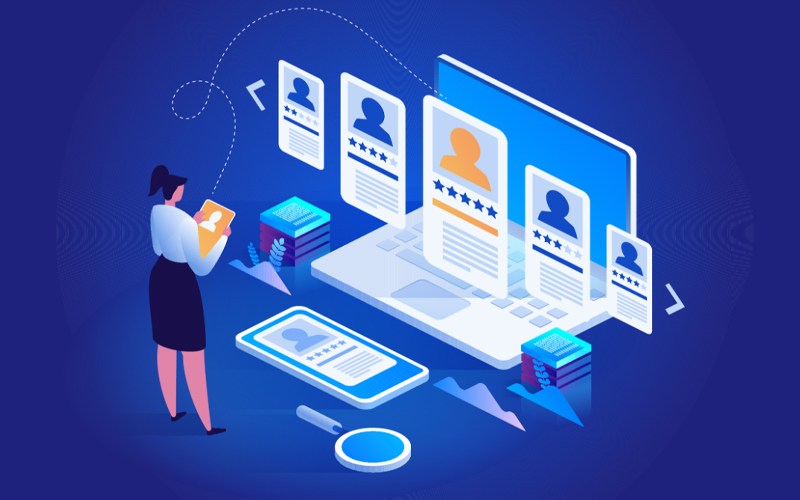Artificial intelligence (AI) has made remarkable strides in enabling significant developments in the mental health therapy space. AI offers innovative solutions to address various challenges and enhance the overall effectiveness of treatment. Researchers, therapists and clinicians are increasingly turning to AI for help with diagnosis, developing therapies and enabling more personalised treatment regimes.
The worst of the Covid-19 pandemic may be over but the mental health issues created during the period still linger on. Depression, anxiety, loneliness, suicidal tendencies and more are common mental health issues that people are seeking help for. In fact, the problem is so large that the healthcare and therapeutic system is feeling quite stretched. Healthcare professionals are exploring and adopting technological solutions to make treatment avenues more accessible.
AI-driven mental health treatment techniques
Certain techniques and applications are already being used to make mental health treatment more personalised, proactive, and private.
- Personalised treatment plans
- Early detection of mental health issues
- Chatbots for support
- Wearable solutions
- Virtual reality therapy
- Predictive analytics
- Automated monitoring and feedback
- Improved patient compliance
- Data-driven insights
AI algorithms analyse vast amounts of data, including patient history, symptoms and responses to different therapeutic approaches. This enables the creation of personalised treatment plans tailored to individual needs. By considering a person's unique characteristics and experiences, AI helps therapists design interventions that are most likely to be effective.
AI-powered tools can detect subtle changes in behaviour and language patterns that may indicate the early onset of mental health issues. This early detection allows for timely intervention effectively preventing the escalation of problems and improving the chances of positive outcomes.
AI-driven chatbots are being increasingly used as virtual mental health companions to provide support and guidance to individuals. These chatbots engage in conversations, offering a non-judgmental space for individuals to express their thoughts and feelings. While they are not a substitute for human therapists, they can supplement therapeutic efforts by providing continuous support between sessions. Not only can chatbots help individuals cope with symptoms, but they can also identify certain keywords that could indicate the need for a human professional.
For example, certain therapeutic chatbots adapt to user personalities and talk them through certain defined therapies and talking exercises to help them cope with various conditions. Another chatbot offers on-demand emotional support to help individuals cope with panic or anxiety attacks.
Certain AI solutions function as wearables. They use sensors to identify changes in bodily signals such as heart rate and rhythm, sleeping patterns and physical activity, and use the information to offer help if deemed necessary. The information collected is rapidly compared with data from other users and predictive warnings are generated if any anomalies are detected. Wearable solutions are convenient since they do not require individuals to open an app and the monitoring can be continuous.
AI, combined with virtual reality (VR), has opened up new avenues for exposure therapy and desensitisation in the treatment of conditions like phobias and PTSD. Customisation of probable real-life situations is possible with virtual environments. Virtual retail therapy lets individuals face their fears in a setting that is controlled and equipped to provide therapeutic support.
AI algorithms can predict potential relapses or deteriorations in mental health based on ongoing monitoring of various factors such as medical and behavioural data, voice recordings from telephone calls, social media data and other data sources. This foresight enables therapists to proactively adjust treatment plans and reduce the risk of setbacks. In fact, studies indicate ML can predict and classify many mental health problems including depression, schizophrenia, and even suicidal thoughts with remarkably high accuracy. Studies are also underway to predict which individuals are likely to develop mental health symptoms in future.
AI-driven techniques are also being used to understand which individuals are more likely to respond positively to cognitive behavioural therapy (CBT) and can be prescribed less or no medication. Patient outcomes in such situations can improve tremendously since all medications have side effects too.
AI tools can continuously monitor and analyse a patient's progress, providing therapists with real-time feedback. This not only reduces the burden on therapists but also allows for more timely adjustments to treatment strategies.
Perhaps one of the biggest challenges of treating individuals with mental health issues is ensuring they comply with the prescribed treatment plans. AI techniques can even predict when an individual may slip into non-compliance. Patterns and conditions in an individual’s life that can trigger non-compliance can also be identified via AI. Necessary reminders or interventions by their healthcare providers at such times can ensure compliance.
By analysing large datasets, AI can uncover patterns and trends in mental health, contributing to a deeper understanding of different conditions. This knowledge can help in the development of more effective therapeutic approaches and interventions.
Proceed with caution, challenges ahead
While AI is undoubtedly enhancing mental health therapy, it's crucial to emphasise the importance of maintaining a human touch in the therapeutic process. AI should be seen as a valuable tool to support and augment the capabilities of mental health professionals but not as a replacement for the unique empathy and understanding that human therapists offer.
Challenges that should not be ignored include:
- AI bias: If the datasets used to train AI algorithms are inaccurate, biased or imbalanced in any way, the effects will trickle down and predictions can be unreliable. Social prejudices can also be perpetuated. It is critical that AI engineers and mental health professionals work jointly and ensure that there are enough checks and balances to counter biases, if any.
- Uncertainty in diagnosis: Unlike diagnoses based on medical tests, mental health issues are largely diagnosed on symptoms and experiences reported by the individual. Machines can make errors under such conditions and must be sufficiently monitored to eliminate errors in judgement.
A WHO report expresses concern over the blanket promotion of AI to treat mental health. It points out that so far AI addresses only certain conditions and there are significant gaps in understanding how AI can be used to address mental healthcare. There is insufficient understanding of the risks involved and the flaws in data processing by AI healthcare applications are a matter of concern. Methods and models must be assessed thoroughly before being used in real-life situations. However, the fact that AI-driven treatment methods have potential, and in many cases are working with positive effects, is undeniable.







